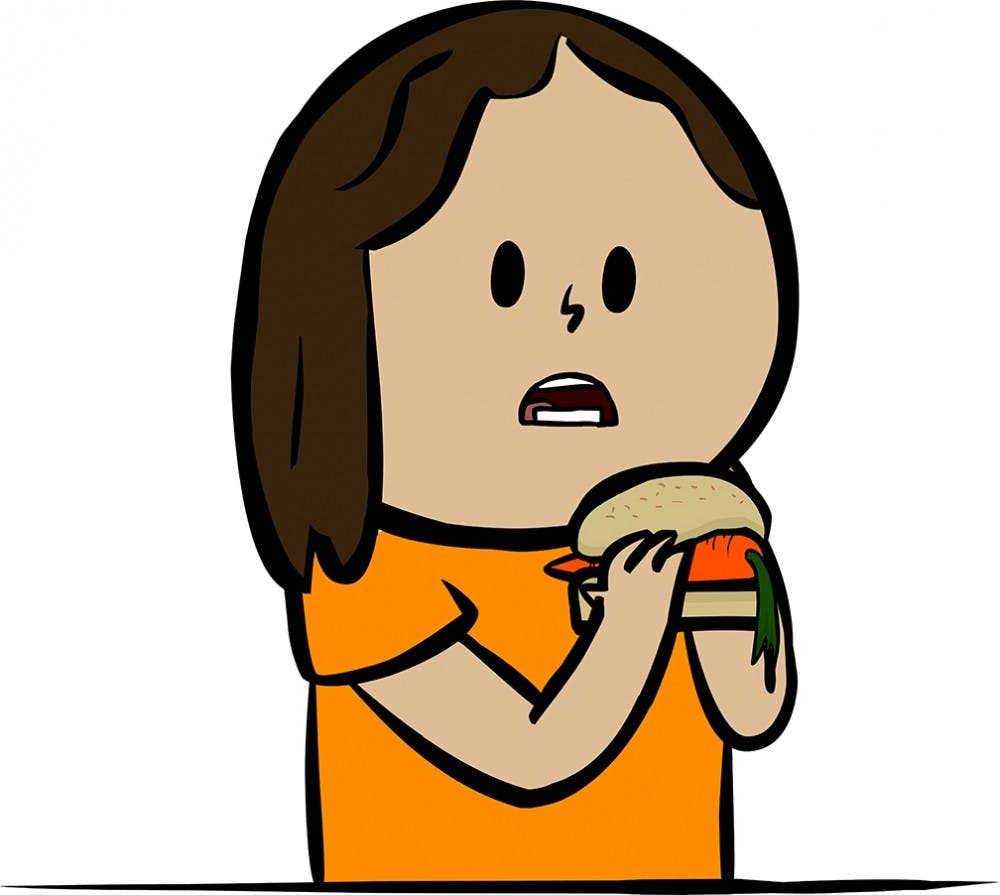Going vegetarian for a week seemed like a fun idea, but I thought from Day 1 that the project would be difficult. I’m a girl who considers steak and cheeseburgers to be their own food groups, so I naturally assumed I would be doodling pictures of chicken wings all over my school notes by Day 2. Surprisingly, I found it to be less of a challenge and more of an insightful learning experience.
As the week went on, I found myself not craving meat much. Even though chicken tenders and burgers still looked appetizing, I was not drooling over them as I thought I would be. I was completely content with choosing a meat-free salad over one with chicken and I did not mind having pasta without meatballs for supper. Plus, it forced me to cook more, allowing me to create new dishes I would not have tried otherwise.
Staring down at my tofu Caesar wrap — which was quite tasty — I began to think of why people decide to go vegetarian. Everyone assumes people go vegetarian because they want to save animals’ lives, but I believe a deeper meaning can be applied to the diet. We all know that choosing a veggie burger over a regular burger will not magically save a cow’s life and eating eggs for breakfast over bacon will not save a pig from being slaughtered. What vegetarianism does do, however, is make you more mindful of humanity’s overall impact on animals.
Before I started the diet, I honestly did not think twice about eating meat. After going without it for a few days, however, I began to think of how I no longer played a “negative” role in an animal’s life: I was no longer a reason for a creature to die earlier than it must. I was also reminded of the neglect that many animals receive on large commercial farms. Not every farm mistreats its animals, but keeping the thought in mind will definitely make you think twice about buying that meatball sub.
Vegetarianism is not, therefore, a way to stop a cause as much as it is a personal endeavor to remember what animal resources we consume or use on a daily basis. By going vegetarian, a person is reminded of how he or she can support a cause he or she feels strongly about: Animal rights.
Vegetarianism creates a mindset from which all of us can learn. It shows us we can always do something for a cause we believe in, even if we cannot fix the problem single-handedly. Whether it is raising money to fight cancer or refusing to give service to a non-ethical business, we can all find a cause to stand behind. Hopefully all of us will find this cause at some point in our lives, but in the meantime, I will be choosing meat-free options more frequently for my newfound cause.


The Slate welcomes thoughtful discussion on all of our stories, but please keep comments civil and on-topic. Read our full guidelines here.